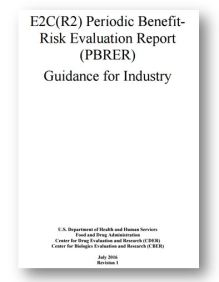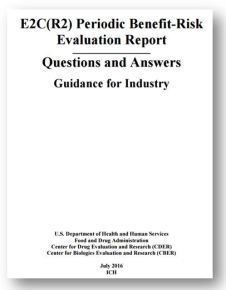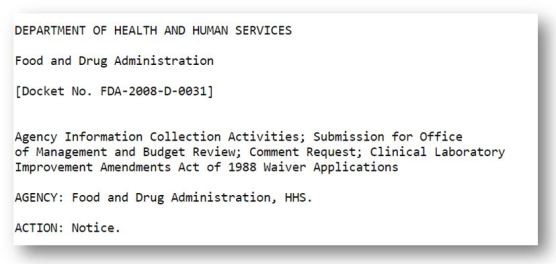FDA BRIEF: Week of July 18, 2016



FORMAT, CONTENT, CONSIDERATIONS for Periodic Benefit-Risk Evaluation Report (PBRER)
- Analysis of new or emerging information on the risks and benefits – appraisal of product’s overall benefit-risk profile
- Relevant new safety information since international birth date (IBD)
GENERAL PRINCIPLES
- Single PBRER for an Active Substance
- PBRERs for Fixed-Dose Combination Product
- Products Manufactured and/or Marketed by More Than One Company
- Reference Information
- Level of Detail
- Efficacy/Effectiveness
- Benefit-Risk Evaluation
- Periodicity and PBRER Data Lock Point
- IBD and Data Lock Point
- Managing Different Submission Frequencies
- Time Interval Between Data Lock Point and Submission
- Format and Presentation
GUIDANCE ON CONTENTS
- Introduction
- Worldwide Marketing Approval Status
- Actions Taken in the Reporting Interval for Safety Reasons
- Changes to Reference Safety Information
- Estimated Exposure and Use Patterns
- Data in Summary Tabulations
- Summaries of Significant Safety Findings From Clinical Trials During the Reporting Interval
- Findings From Non-Interventional Studies
- Information From Other Clinical Trials and Sources
- Nonclinical Data
- Literature
- Other Periodic Reports
- Lack of Efficacy in Controlled Clinical Trials
- Late-Breaking Information
- Overview of Signals: New, Ongoing, or Closed
- Signal and Risk Evaluation
- Benefit Evaluation
- Integrated Benefit-Risk Analysis for Approved Indications

 COLLECTION OF INFORMATION for CLINICAL LABORATORY IMPROVEMENT AMENDMENT (CLIA) per FDA Guidance on CLIA waiver for in vitro diagnostics
COLLECTION OF INFORMATION for CLINICAL LABORATORY IMPROVEMENT AMENDMENT (CLIA) per FDA Guidance on CLIA waiver for in vitro diagnostics
- Description of features that make it ‘simple’
- Hazard analysis
- Poential sources of error
- Design and results of flex studies
- Fail-safe and Failure Alert mechanisms
- Validation studies
- Clinical tests for test accuracy by intended operators
COST FOR WAIVER : $350,000
- Clinical study costs: Site selection, qualification, protocol review, execution